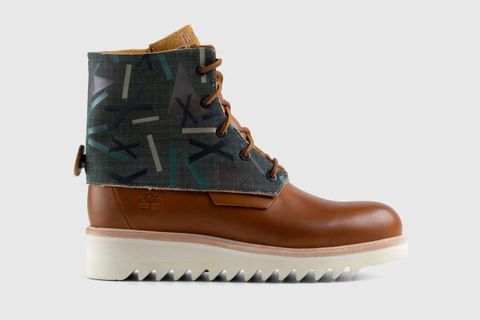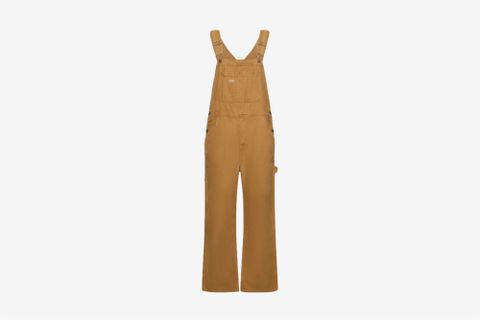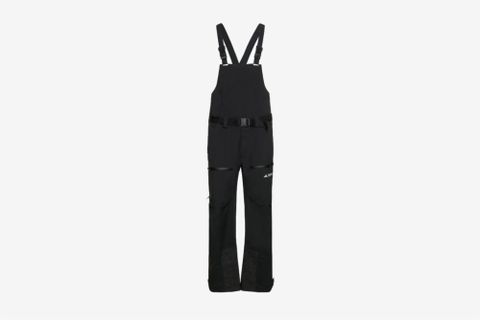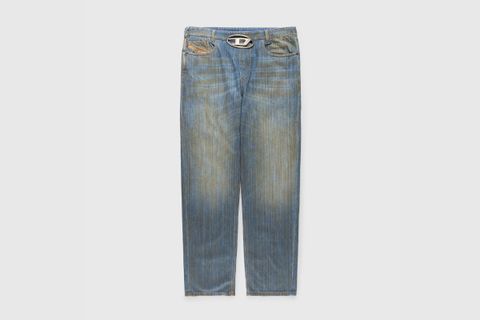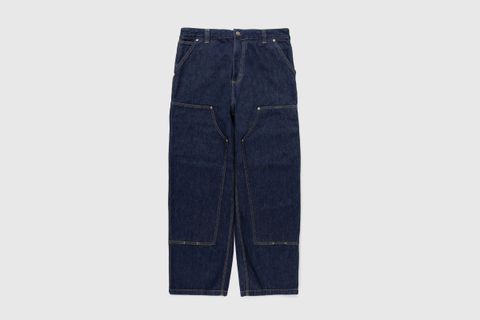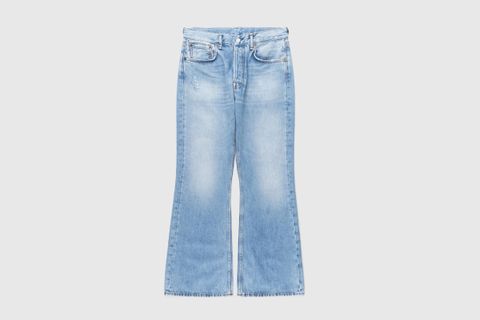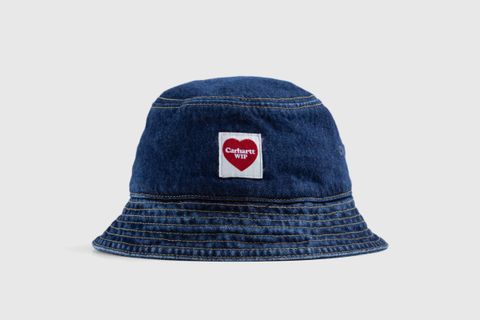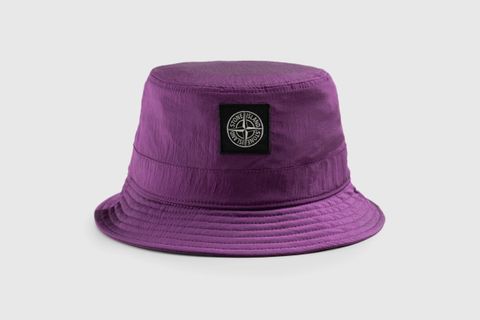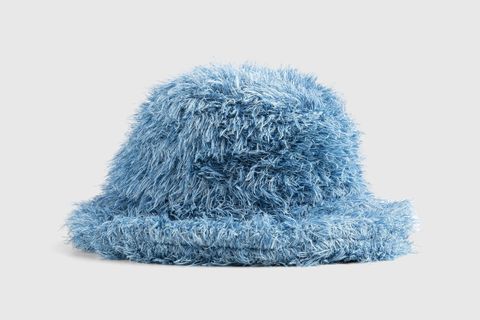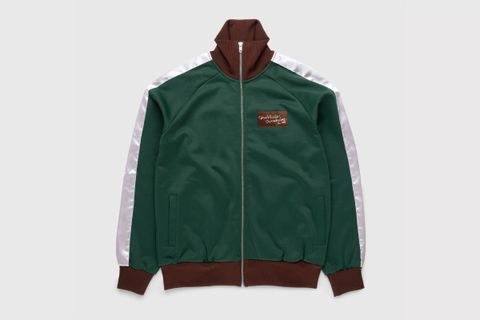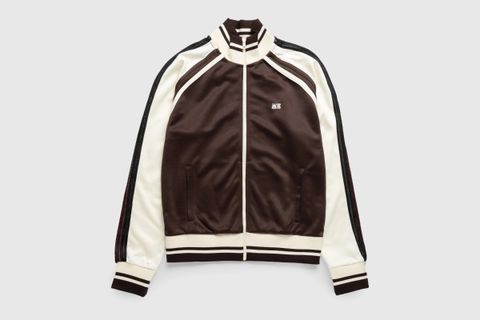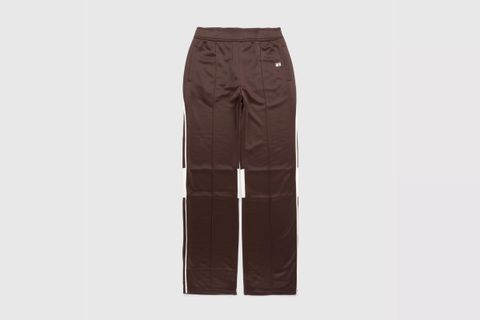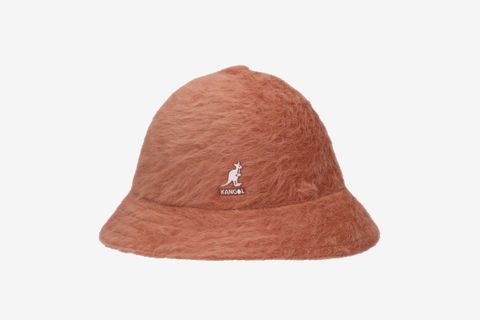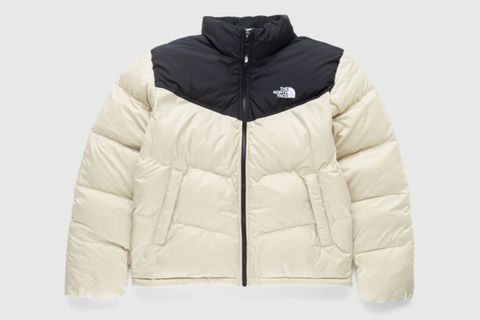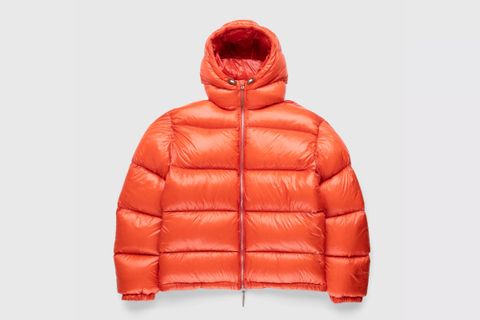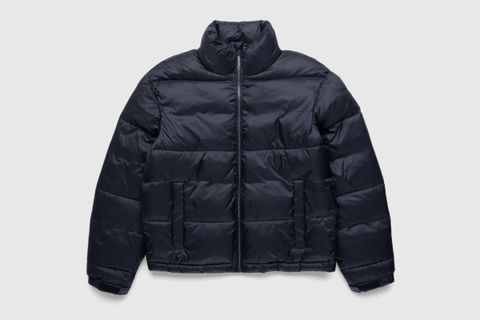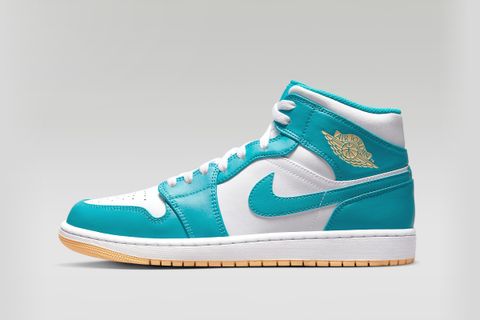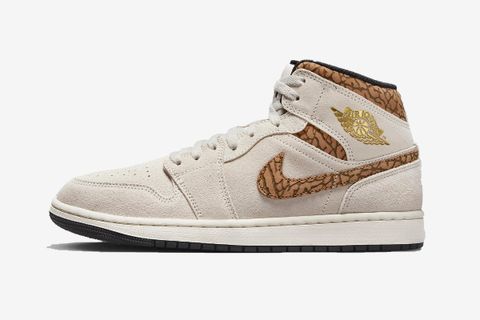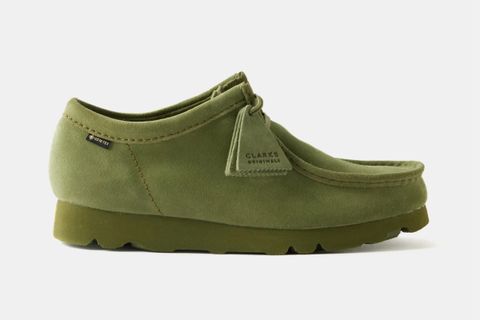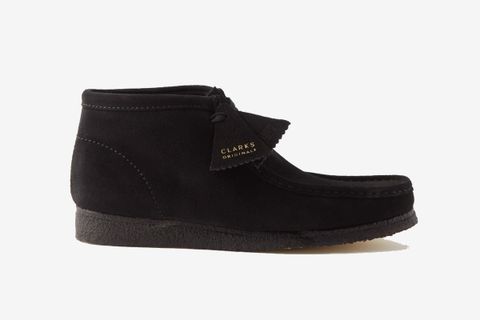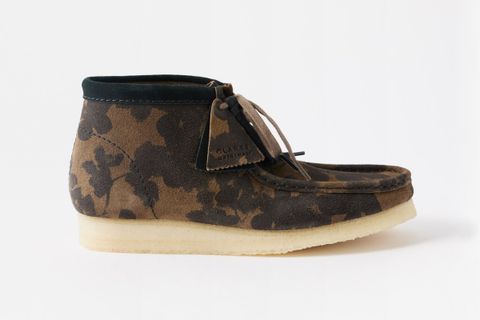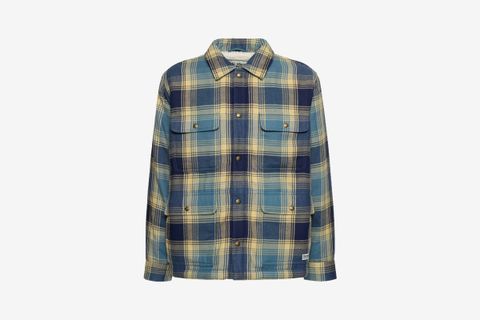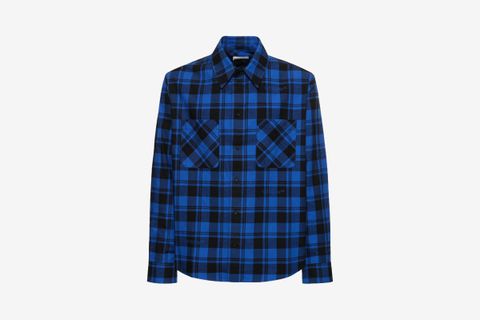The Trends & Brands That Defined ’90s Hip-Hop Fashion
‘90s nostalgia has been driving the fashion scene for several years now, and ‘90s hip-hop fashion has been central to that revival. This shouldn’t necessarily come as a surprise; current trends across the spectrum have been dominated by Supreme, the New York skate brand whose formula is largely built on the legacy of ‘90s street fashion.
Beyond that particular connection, however, the ‘90s as an era is well-known for its wealth of fashion trends. As the last period before the digital world dominated culture, the legacy of the ‘90s is viewed through a rose-tinted lens of CD covers, magazine spreads, cable TV shows, and blockbuster films.
Black music groups like Bones Thugs-n-Harmony and Boyz II Men took the aesthetic of ‘90s hip-hop and created a style that influenced virtually every major boy band of the decade, and Hollywood blockbusters like Poetic Justice, Boyz n the Hood, and Juice placed black American style on the big screen and created some of the most memorable scenes in cinematic history (as well as some solid acting performances from Janet Jackson, Ice Cube and Tupac Shakur).
For anyone who came of age in the era, just hearing the words ‘90s hip-hop fashion probably triggers a laundry list of reference points and essential pieces, but even then it can be difficult to describe them in words. As for younger generations who are buying contemporary pieces from labels like OFF-WHITE, Palace, and Guess, it might be hard to understand the references without first-hand familiarity.
So here’s a brief rundown of the essential ‘90s hip-hop fashion wardrobe, and how each piece came to embody the style of the times in its own little way.
Everything you need to know about 90s hip-hop fashion, from the iconic to the obscure.
Timberland Boots
To this day, the humble suede Timberland boot in its classic tan colorway is known as a staple of New York-style, but its origins can also be traced to ‘90s hip-hop. Though intended for construction workers and the like, the word is the shoes gained traction among New York’s drug dealers who needed strong, sturdy footwear to keep their feet warm and dry during long hours out in the streets. Biggie, Tupac, Nas, Aaliyah – virtually every hip-hop and R&B artist you can think of – all wore Timberland boots and still do today.
Shop Timberland boots here
Dungarees
Of all the weird and wonderful styles that the ‘90s produced, the popularity of denim dungarees, however welcome, is probably hardest to place. Fitted or baggy, strapped up or with one undone, styled with T-shirts, hoodies, button-ups or nothing at all, the unexpected trend got a cultural cosign from the likes of TLC, The Fugees, Will Smith and Tupac, and became a staple of the era.
If you wanted proof that we’re going through a ‘90s revival right now, consider that Supreme released a pair of dungarees several seasons back, and have released at least one pair consistently every season since. The force is strong.
Shop our favorite overalls
Denim
Denim jeans might be a fashion staple today, but that wasn’t always the case. Adopted during numerous subcultures like punk rock and the flower power movement, by the ‘80s denim jeans had moved from pure workwear to credible fashion garm, heralding a new age of designer denim brands.
By the ‘90s, labels like Guess Jeans, Versace, Moschino, and Calvin Klein were leading the way in high-end, fashion-focused denim, while black-owned labels like Phat Farm and FUBU cemented denim as part of the ‘90s hip-hop fashion wardrobe.
West Coast artists like Tupac and Eazy-E of N.W.A. took the style even further, pairing denim jeans with oversized denim jackets for the full ensemble.
Shop our favorite denim products
Bucket Hats
Another style popularized by LL Cool J in the late ‘80s, bucket hats were equally popular in hip-hop fashion during the early ‘90s, making regular appearances on members of Wu-Tang Clan and EPMD. Once again, it was Kangol who dominated this style, with their Kangaroo logo regularly featuring on rapper’s buckets of choice.
Unlike Kangol caps, the bucket hat style has endured to this day, a popular choice among the rap scene’s more esoteric figures like Earl Sweatshirt and ScHoolboy Q.
Shop our favorite bucket hats
Luxury Tracksuits
With high-end designers regularly collaborating with the likes of Nike, adidas, PUMA and more, it’s easy to take the idea of high-end sportswear for granted these days, but it wasn’t long ago that sports apparel and high fashion existed in strictly separate spheres.
That changed in the late ‘70s and ‘80s with the birth of lifestyle sports like jogging and country club culture, as well as the rise of premium Italian sportswear brands like FILA, Kappa and Sergio Tacchini. Tracksuits began appearing in ostentatious fabrics like velour and silk, with ornate decorative details and a healthy amount of branding.
In fact, it’s possible the luxury tracksuits we see labels like Gucci and Versace releasing today wouldn’t exist if it weren’t for Daniel "Dapper Dan" Day, a Harlem-based designer who created bootleg high-fashion tracksuits for many of hip-hop’s earliest stars throughout the ‘80s.
Shop our favorite luxury tracksuits
Kangol Caps
First popularized by LL Cool J during the ‘80s, British headwear company Kangol became woven into the cultural memory of ‘90s hip-hop after appearing in some the era’s most seminal films. In 1991, Wesley Snipes played Nino Brown, a drug lord who takes over a New York apartment block, turning it into around-the-clock crack house in New Jack City. Throughout the film, Brown and several of his members can be seen wearing Kangol caps with the brand’s logo proudly displayed.
A few years later, Quentin Tarantino would follow up his hit film Pulp Fiction with Jackie Brown, an homage to ‘70s blaxploitation cinema starring Samuel L. Jackson as Ordell Robbie, whose back-turned Kangol hat became one of Jackson’s most iconic looks. In fact, so attached was Jackson to the style that he’s the first person most people think of when they think of Kangol hats.
Shop our favorite Kangol hats
Puffy Jackets
Another trend born out of street life necessity, insulated jackets by brands like The North Face and Helly Hansen were a must for anyone planning on spending long hours on street corners in chilly cities like New York or Chicago.
When looking at down-filled jackets as a fashion essential today, it’s important to remember that they were never intended to look good as such; they were designed purely for practical purposes. It was black youth in cities on the East coast who took an essential piece of clothing for their climate and made it look good, just as they did with Timberland boots, Champion hoodies and beanies.
When East Coast rappers rose to stardom, they took the style of their cities with them, and the puffy jacket has been a classic ever since.
Shop our favorite puffer jackets
Air Jordans
Quickstrike drops, high-fashion collaborations, luxury sneakers by every fashion house under the sun, these days we take sneaker culture for granted. Seeing a new colorway drop and resell for hundreds of dollars minutes later is just part of the culture. But back in the ‘90s, the idea of sneakers as anything more than something for sport was an alien concept.
When basketball player Michael Jordan partnered up with young sportswear brand Nike on a signature Air Jordan sneaker in 1984, the shoe quickly erupted into a national phenomenon. A few years later, Nike spun the series off into its own Air Jordan line, creating possibly the first chapter in sneakerhead culture. Like the classic commercial with iconic film director Spike Lee said, “It’s gotta be the shoes!”
Shop our favorite Air Jordans
Clarks Wallabees
Clarks understated suede moccasin shoe might not be the first thing that comes to mind when you think of ‘90s fashion, but whenever you find an element of ‘90s hip-hop fashion that you can’t make sense of, you should probably look to the Wu-Tang Clan.
Members of the Clan regularly rocked Clarks Wallabees from their early days, and just as the rough and conceptual production of their debut album, Enter the Wu-Tang (36 Chambers) redefined the sound of hip-hop on its release in 1993, their unique approach to dress did the same thing for hip-hop fashion.
Shop our favorite Clarks Wallabees
Plaid & Check Flannel
Hip-hop and grunge might have had totally disparate sounds, but if there’s one thing that united the two musical subcultures, it’s the humble check flannel shirt. A longtime staple of the classic American wardrobe, they were cheap, affordable, versatile, and an easy way to inject a bit of color into an outfit. Wear them oversized or around the waist, but never buttoned up.

